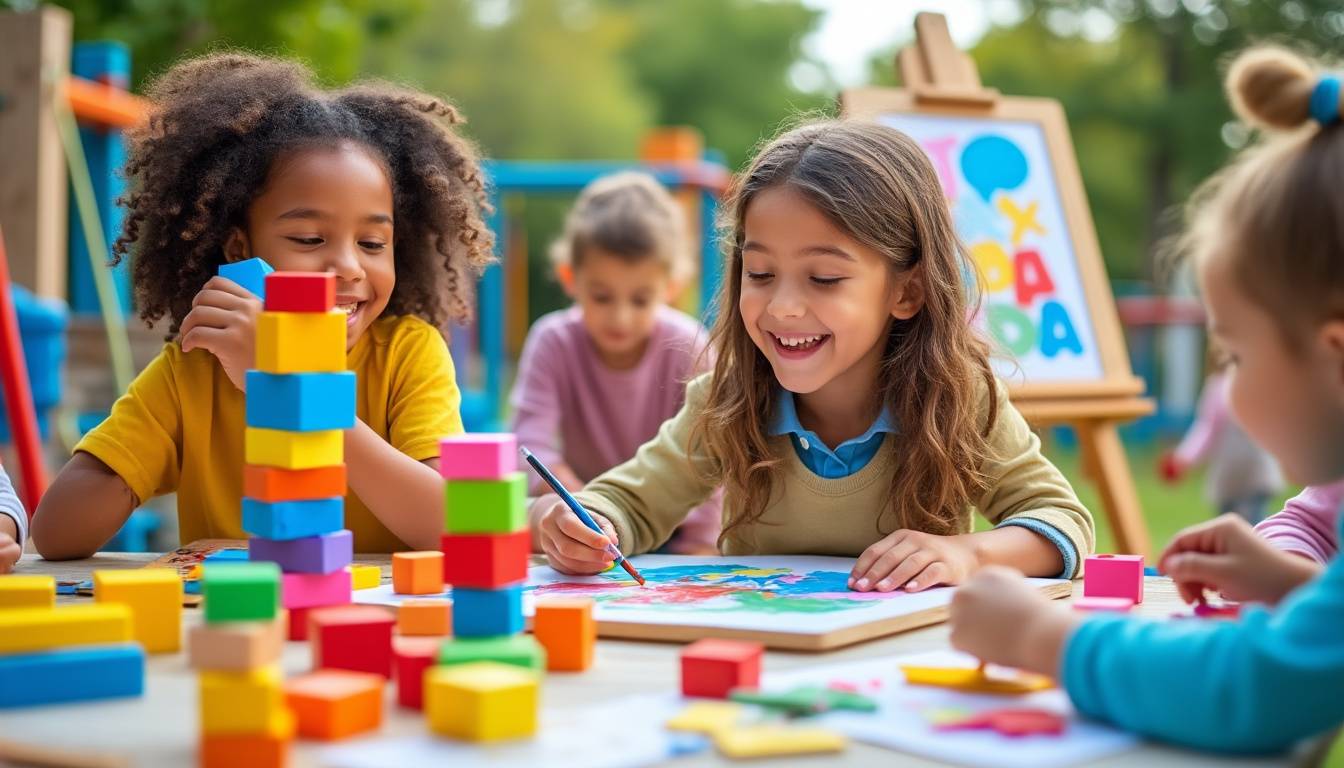Play is far more than a source of fun for children; it serves as a powerful engine for developing essential life skills that will equip them throughout adulthood. The transformative impact of play has been increasingly recognized by educators and parents alike, as it nurtures cognitive, social, emotional, and physical growth. From imaginative role-playing with LEGO and Playmobil to strategic thinking through Magna-Tiles and SmartGames, the diversity of play experiences fosters a rich foundation for lifelong learning and success.
How Play Builds Fundamental Social Skills in Children
Engaging in social play provides children with critical opportunities to develop communication, empathy, and cooperation. Through sharing toys like Fisher-Price sets or negotiating rules in group games, children learn to navigate complex social interactions. These experiences enhance their ability to work effectively in teams and resolve conflicts amiably.
- Communication: Expressing needs and ideas during play fosters language development and listening skills.
- Empathy: Taking others’ perspectives in pretend scenarios builds emotional understanding.
- Negotiation: Developing solutions to disputes teaches compromise and problem-solving.
- Collaboration: Working together on constructive tasks, such as building LEGO models, strengthens cooperation.
Such social learning through play is a cornerstone for building positive relationships, a skill crucial both in childhood and adulthood. Explore more on how play sustains a child’s social development at Education to the Top’s resource on children’s play.
Playtime’s Role in Advancing Cognitive Growth
Play stimulates brain function by encouraging problem solving and creativity. Toys from brands like VTech and LeapFrog are specifically designed to challenge young minds with puzzles, interactive activities, and language games, fostering early critical thinking skills. Moreover, activities involving SmartGames or construction sets such as Magna-Tiles develop spatial reasoning and logical thought.
- Problem Solving: Tackling puzzles nurtures analytical thinking.
- Creativity: Imaginative role-play and artistic exploration ignite innovation.
- Spatial Skills: Manipulating blocks and shapes enhances perception and coordination.
- Memory and Concentration: Engaging in goal-oriented play strengthens focus.
These cognitive benefits underline why educational play is integral to autumn transformations in learning readiness, a key theme discussed in Education to the Top’s autumn education transformation article.
Physical Development and Emotional Regulation Through Play
Physical activity during play promotes the development of gross motor skills, coordination, and balance. Children running around in games of tag, climbing jungle gyms, or creating obstacle courses with Playmobil or Mattel toys develop strength and resilience. More subtle movement-based and imaginative play also support fine motor skills essential for writing and daily tasks.
- Gross Motor Skills: Running, jumping, and climbing build muscle and endurance.
- Fine Motor Skills: Manipulating small pieces like LEGO blocks sharpens hand-eye coordination.
- Emotional Regulation: Play allows children to express feelings, regulate moods, and rehearse managing frustration.
- Stress Reduction: Active play aids in releasing tension and improving overall well-being.
Encouraging active recess and free play significantly enhances learning and emotional resilience, an approach detailed in Education to the Top’s insights on play and recess.
Fostering Creativity and Lifelong Curiosity Through Play
Open-ended play with open materials such as Melissa & Doug creative kits or customizable LEGO sets inspires children to explore and invent. Creative play nurtures problem-solving with imagination, an invaluable skill for adapting to new challenges and pursuing lifelong learning.
- Imaginative Scenarios: Role-playing encourages perspective taking and innovation.
- Artistic Expression: Drawing, building, and music stimulate diverse intelligences.
- Exploratory Learning: Hands-on experimentation fosters curiosity and inquiry.
- Self-Confidence: Success in creative endeavors boosts motivation and perseverance.
To realize the full benefits of play in education, integrating both digital screen time and physical playground activities is essential, as underlined in this article on balancing screen and playground time.
Leveraging Educational Toys to Support Holistic Child Development
Recognizing the wide-ranging benefits of play, leading toy manufacturers like Hasbro, Mattel, VTech, LeapFrog, and Fisher-Price continue to innovate, offering products designed to engage children’s minds and bodies simultaneously. When paired with expert guidance from educators, these toys become powerful tools in building foundational skills.
- Brand Innovations: SmartGames and Magna-Tiles enhance logic and pattern recognition.
- Interactive Learning: LeapFrog and VTech toys encourage language and math skills through play.
- Creative Construction: LEGO and Playmobil sets promote fine motor skills and storytelling.
- Role-Playing Kits: Fisher-Price and Melissa & Doug offer thematic play for social-emotional growth.
Integrating these resources within educational settings like lab schools significantly supports holistic growth and readiness, as detailed in Education to the Top’s coverage on lab schools.


